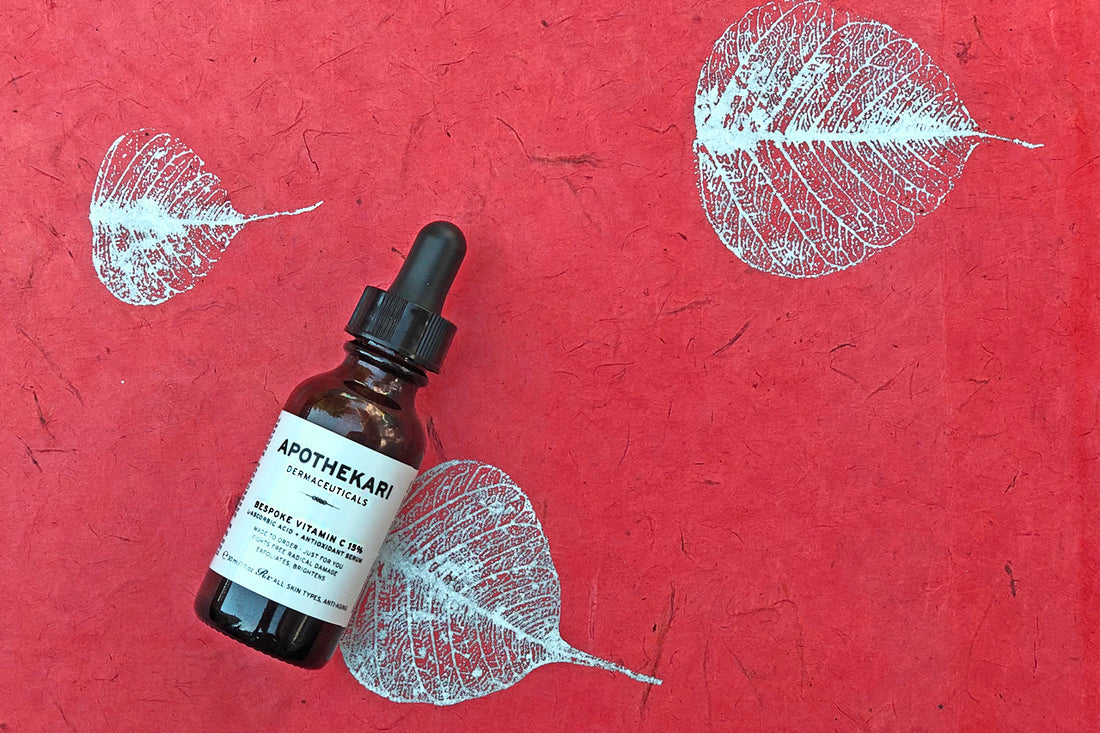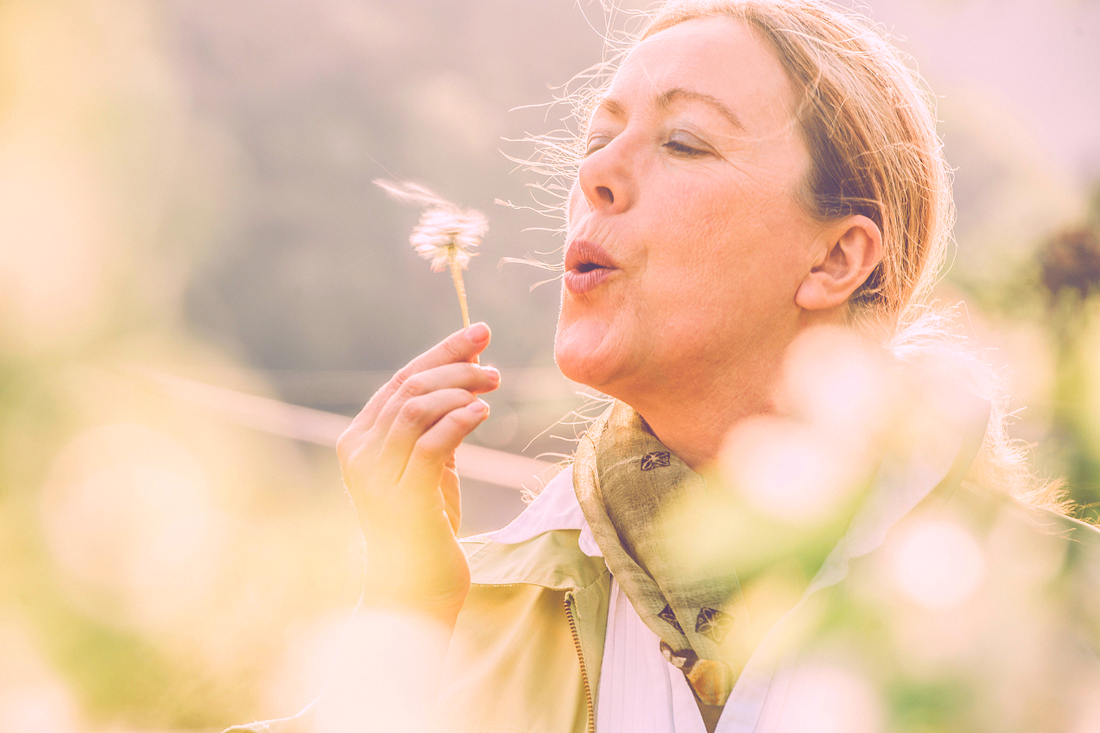Blog
This Serum Can Fight Free Radicals
Learn how to fight free radicals, molecules which can damage skin, by adding this serum to your daily skincare routine. Shop Bespoke Vitamin C 15% What Are Free Radicals? ‘Free radicals’ AKA Reactive Oxygen Species (ROS) impact our health, including that of our skin. They are created in our bodies as a result of exposure to certain different physical or chemical conditions or illness, including pollution, UV rays, some pesticides and smoke along with the consumption of excess alcohol and some fried foods. Free radicals are thought to contribute to diseases such as heart disease, autoimmune disorders (like rheumatoid arthritis), diabetes and degenerative diseases (Huntington’s or Parkinson’s disease) as well as cancer. Age-related changes in our appearance, including a loss of skin elasticity, wrinkles, graying hair, hair loss, and changes in hair texture are also thought to be related to free radicals. That’s why it’s important to fight free radicals. How to Fight Free Radicals in Skin Once free radical damage starts, it’s thought that a ‘cascade’ of damage occurs, producing more free radicals and speeding up the process of cell damage. This buildup of free radicals offers one explanation for why even healthy bodies age and deteriorate over time. Antioxidants are highly stable molecules, which donate an electron to free radicals, reducing their path of destruction and thereby lessening the damage they cause. Because they are so stable, antioxidants can do this without becoming free radicals themselves. Our bodies make several important antioxidants – glutathione, catalase, superoxide dismutase – and we can help to fight free radicals even further by consuming antioxidant rich foods or by applying them topically. One single antioxidant isn’t enough; we benefit from a combination of including the following: Vitamin C Vitamin E Ferulic acid Green Tea Resveratrol Coenzyme Q10. Apothekari Bespoke Vitamin C Serum is made with a combination of antioxidants and designed to fight free radicals, promote collagen synthesis, brighten skin tone and improve the appearance of aging skin. It is available in a 10% (sensitive skin) or 15% concentration (non-sensitive skin) and each bottle is made fresh to order, guaranteeing its potency. Apply to skin daily every morning to fight free radicals leaving skin looking more youthful and radiant. Top Tip: Eat Your Antioxidants While the topical application of antioxidants is beneficial to skin, we can’t discount the importance of nutrition. Fruits, vegetables and spices including onion, garlic, turmeric, cinnamon and ginger are a major source of antioxidants, which can help to reduce the risk of developing certain diseases. Enjoy the variety; it is the spice of life after all!
Learn moreBoost Collagen With This Face Serum
Boost collagen with Apothekari A is for Anti-Aging, a face serum that can help keep skin looking healthy and youthful. Shop A Is for Anti-Aging Serum (Our Retinoid Formulation) What is Collagen? Collagen is the protein most abundant in mammals and it’s behind pretty much everything holding you up right now – your bones, skin and muscle. Collagen is made up of amino acids, the building blocks of protein, which give strength and structure to tissues. This allows us to remain bendy, bouncy and generally supple. It’s one of the main components of skin but we sadly start to lose collagen as early as our twenties. Over time, this can lead to fine lines, wrinkles, sagging and loose skin. Fortunately, we can help to boost collagen levels with a combination of factors including lifestyle changes, sound nutrition plus topical treatments including this face serum, A is for Anti-Aging. Sunscreen and antioxidants are a great first defense against damage to collagen. Exposure to UV rays turns up the production of MMPs (matrix metalloproteinases), a group of enzymes responsible for the degradation of most of the body’s proteins like collagen. A well formulated sunscreen, like Shade SPF 30, along with an antioxidant treatment can help to neutralize free radicals and quash inflammation. The good news about some antioxidants, like Vitamin C and green tea, found in our Bespoke Vitamin C Serum, is that in addition to protecting against free radicals, they also protect against collagen loss and help to boost its production. Learn more about how to beat sun damage here. This Face Serum Can Help To Boost Collagen While collagen creams are available, the collagen molecule itself is too large to penetrate skin to where it’s needed, deep in the dermis layer. The better way to boost collagen is to apply treatments that contain ingredients which have been shown to stimulate the production of collagen. In addition to antioxidants, peptides plus retinoids have been shown to boost collagen production. Retinoids like prescription retinoic acid or over the counter retinaldehyde, found in our A is for Anti-Aging Serum, have been around for a while and have a lot of evidence to support their ability to boost collagen levels. They work by ‘turning on’ genes and cells that are involved in collagen production and also help to organize new and existing collagen. Over time, they can minimize the appearance of fine lines and wrinkles. The biggest downside of retinoids is their ability to cause skin irritation. That’s why we are such big fans of the retinaldehyde found in A is for Anti-Aging, which is not only effective, but also the least irritating of all retinoids. Retinaldehyde is supported by other ingredients that can help to protect and improve skin’s appearance. Lifestyle Factors Beyond protecting collagen in your body with topical treatments, there are other things you can do as well. Smoking, stress, excessive alcohol consumption and a diet high in sugar and processed food can all accelerate the loss of collagen. Consume foods high in lean protein, essential fatty acids, fruits and vegetables, which contain amino acids, anti-inflammatory and antioxidant ingredients and help create a foundation for firm skin. Don’t skimp on protein, which is needed to produce collagen. If you’re curious about whether collagen supplements can help to boost collagen levels, know that while the research looks promising, it isn’t yet conclusive. For best results, look for brands that contain hydrolyzed peptides as these are the best way for the collagen stimulating molecules to reach your bloodstream. Other nutrients such as lysine, MSM (methylsulfonylmethane) and keratin stimulate collagen and vitamin C is essential for its production as well.
Learn more


